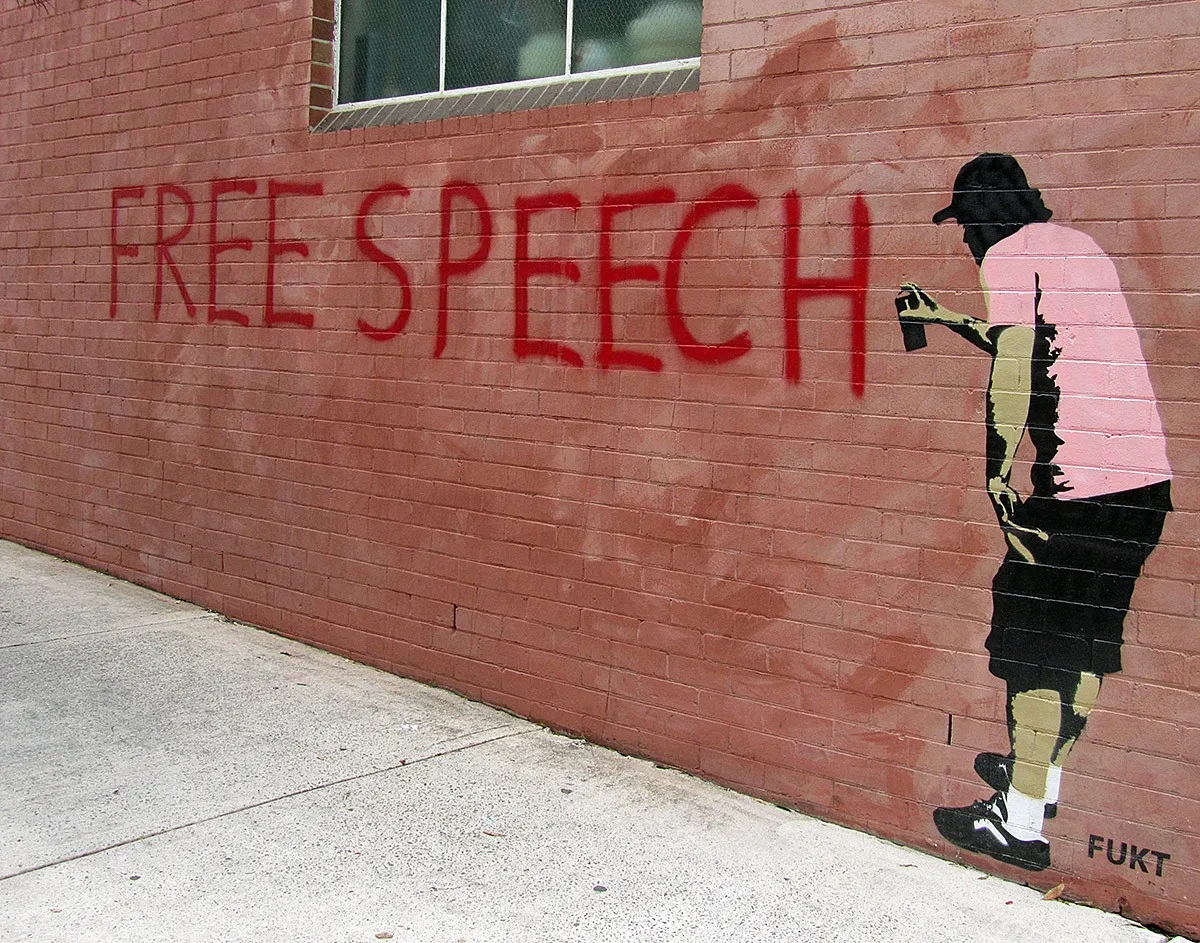Table of Contents
When Renae Maihi went to court, I couldn’t help but wonder where Don Brash, David Seymour and the free speech brigade were. Given that Brash and his “Free Speech Coalition” quickly rushed to court to defend Lauren Southern and what’s-his-face Molyneux’s right to free speech, I waited for them to run to the media to express absolute outrage at the defamation action against Maihi. I waited for them to launch a public fundraising effort to support her defence. I searched far and wide for their expressions of unwavering support.
That’s because neither Southern or Molyneux were attacking anyone’s reputation.
[…]Outspoken free speech advocates seemed strangely reserved last week when [Sir Robert] Jones and Maihi faced off in court. In my honestly held opinion, I can’t say I’m surprised.
Um, free speech doesn’t give anyone the right to attack someone’s reputation with impunity.
[…]It’s difficult to imagine a mechanism that has a more chilling effect upon free speech than defamation proceedings. And as for freedom of speech, if, as “Free Speech Coalition” member Chris Trotter wrote in a blog recently, “At the core of the free speech argument is the proposition that every citizen is obliged to uphold the right of every other citizen… to express their opinions freely and without the fear of any retribution beyond their opponents’ vigorous refutation,” then shouldn’t he, Brash and the entire so-called “coalition” have been at pains to defend Renae Maihi’s “right… to express [her] opinions freely and without the fear of any retribution beyond [her] opponent’s vigorous refutation”?
Let’s stop right here. Maihi has every right to call the great Sir Bob Jones a racist. But if in doing so, she harms his reputation then she has to pay for that harm. It’s not rocket science.
[…”]How much do we tolerate of ridiculous offence-taking?” Jones asked last week, whilst sitting in court because a young woman started a petition that he apparently never read but that nonetheless offended him so deeply that he launched proceedings against her.
It felt like theatre of the absurd. Jones voiced an opinion that offended Maihi, who in response voiced an opinion that offended Jones. And round and round we went.
If the great Sir Bob only sued because he got offended then, with all respect to the great Sir Bob, that was a mistake. But it doesn’t take much brain power to see that, as Sir Bob is a businessman who deals with people of different races, how being called a racist can be damaging.
[…]Whether Jones is racist or not (and I have some honestly held views about that) in a free society you are absolutely entitled to feel offended and outraged, and to express such feelings. You are also entitled to express stupid, offensive, controversial, morally-bereft, inane, badly written opinions. You are also, if you’re wealthy enough, entitled to go to court to ask it to give someone who’s hurt your feelings and written or said something not very nice about you a telling off. But just because we have these rights – to say stupid things, to express outrage, and to go to court – doesn’t mean it’s always wise, or indeed reputation-enhancing, to exercise them.
Actually no. You have no right to seek redress for hurt feelings, except for cases of intentional infliction of emotional distress. And that involves more than just being called a name.
Defamation is not about hurty feelings.
Funnily enough, in some ways, defamation legislation is one of the most significant threats to the freedom of expression. As legal commentator Graeme Edgeler recently wrote for the Herald, “In theory, there are other laws that could more greatly impact freedom of expression in New Zealand, but defamation laws far exceed them in practice.” He went on to suggest that the courts should not be concerned with simple name-calling, because, “if your reputation can be harmed by someone calling you a name, your reputation may not have been as good as you thought it was”, and that “the outdated, restrictive defamation laws applying in New Zealand” should be changed “the sooner the better”.
Edgeler is of course right in that defamation is about reputation. But if a journalist has a reputation for honest and original writing and someone calls him a plagiarist, it’s easy to see that he has a good case for defamation.
And so I find myself waiting again, this time for our cherished free speech advocates to co-sign Edgeler’s missive. Otherwise, I can’t help but wonder whether some of those calling for “free speech” secretly just want to be able to say whatever they want without anyone being able to tell them that, in their honestly held opinion, they’re a dickhead for saying it.
This is the same as saying people who want drug law reform just want to be able to get high every day. No, what people who advocate for free speech want is to be able to say what we want without being arrested or deplatformed by the State. Which brings me to my final point.
Free speech is not concerned with the individual and other individuals. It’s about the individual and the State. I could submit a piece to a left-wing blog saying that man made climate change is bollocks and they have every right to not publish it (left-wing blogs tend to be a lot less tolerant of dissenting views than right-wing blogs). But if the government were to pass laws saying that those who question MSM made climate change could be arrested and thrown in jail, then we are talking about free speech.
If you enjoyed this BFD article please consider sharing it with your friends.









